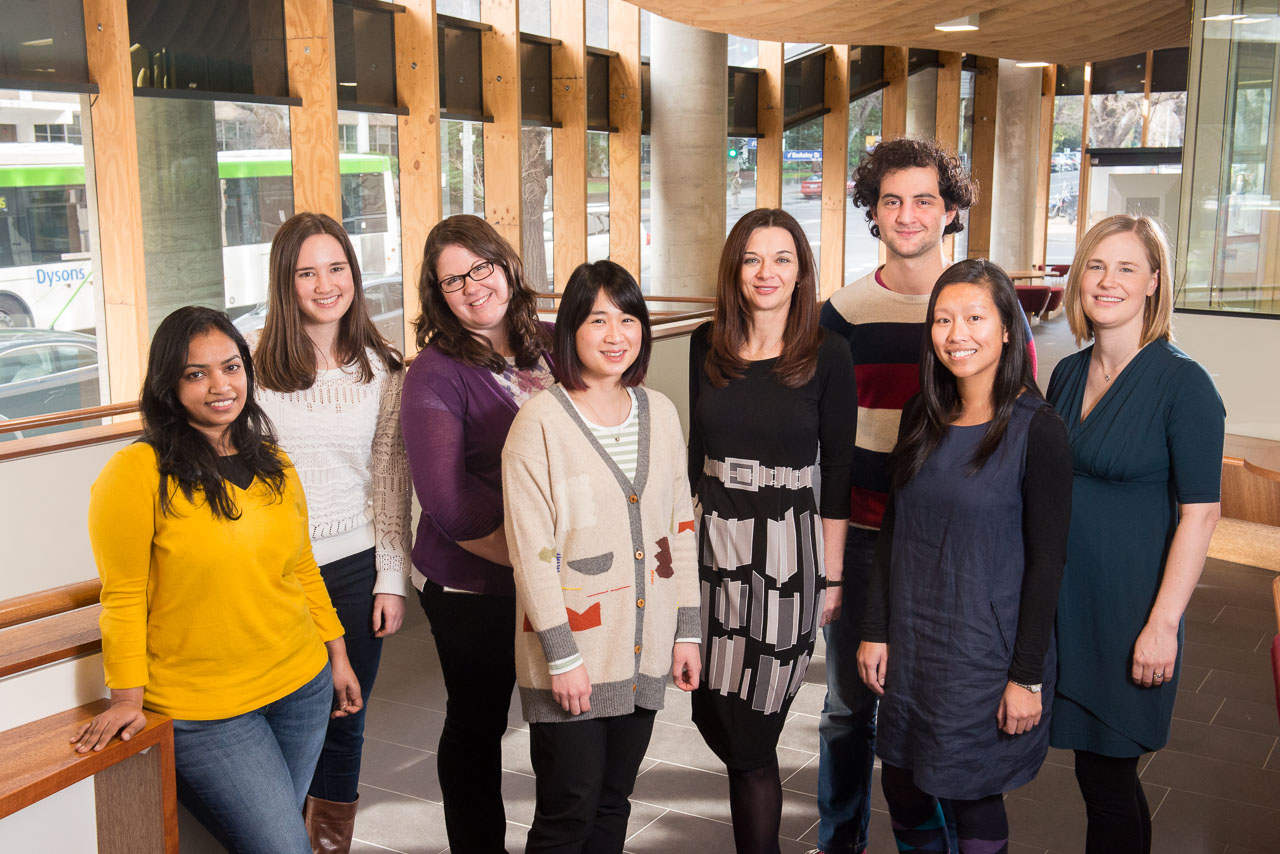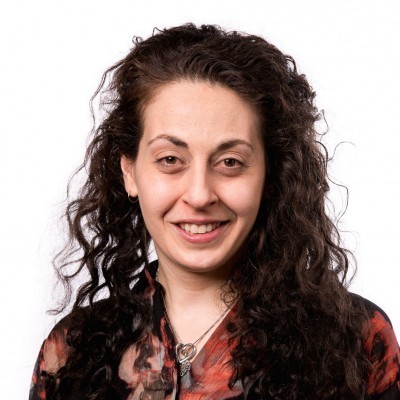Our Work | Institute Themes | Viral Infectious Diseases | Influenza
Influenza|Research
-
Research Groups
Clinical Research
-
Kedzierska Group
Professor Katherine Kedzierska’s team researches the immunity to viral infections, especially the newly emerged influenza viruses. Her work spans basic research – from mouse experiments to human immunity, through to clinical settings, with a particular focus on understanding universal CD8+ T cell immunity to influenza viruses. Her studies aim to identify key correlates of severe and fatal influenza disease in high-risk groups including children, the elderly and Indigenous Australians.
Other work areas include:COVID-19, Immunology, Viral Infectious Diseases
Current Projects
-
To define ‘universal’ influenza-specific CD8+ T-cell responses across different HLAs
Although CD8+ T-cells confer universal immunity to distinct influenza viruses and may limit influenza-induced mortality, the overall efficacy of human influenza A virus-specific CD8+ T cells directed at any conserved and/or variable epitopes remains unclear. Here, Katherine’s group aims to (i) understand influenza-specific CD8+ T-cell immunity across different HLAs; (ii) determine the efficacy of immunodominant CD8+ T-cell responses in humans; (iii) evaluate the conservation of immunogenic epitopes in birds, pigs and humans through analysis of viral evolutionary history (with Associate Professor Vijaykrishna from Duke-NUS in Singapore); (iv) understand immunity to clinically important but understudied influenza B viruses.
-
To identify correlates of severe and fatal influenza disease in high-risk groups
Enhanced susceptibility to influenza and exacerbated disease severity can reflect over-activation of the innate immune system, impaired humoral and cellular immunity and be influenced by host genetic factors (HLA or IFITM3). Understanding the key deficits that lead to severe disease in high-risk groups will provide insight into how immune interventions might minimise the incidence of severe influenza pneumonia. Katherine’s group studies the contributions of virological, immunological, clinical and host factors to susceptibility, clinical severity and outcome for different high-risk groups: (i) young children and the elderly (with Dr Crowe from Deepdene Surgery); (ii) Indigenous Australians (with Associate Professor Tong from Menzies in Darwin and Professor Miller from Griffith University in New South Wales), (iii) high-risk groups hospitalised through FluCAN (with Associate Professors Cheng and Kotsimbos) and Shanghai Public Clinical Hospital at Fudan University in China (with Professor Xu).
-
To unravel mechanisms underlying the early generation of human CTL memory
Though immunological memory is of pivotal importance for vaccine development and immunotherapy, the molecular and differentiation pathways central to the generation of (particularly) human CD8+ T-cell memory are poorly understood. Here, Katherine’s group aims to (i) establish the key factors driving the early establishment of influenza-specific T cell memory; (ii) To define molecular processes involved in CD27-mediated co-stimulation of human T cells. As memory is crucial for protection against recurrent infections, this work will provide novel insights into the generation and efficacy of human T cell memory populations and inform effective CD27-mediated stimulation for immunotherapy.
Lab Team

-
Laboratory Head
-
Research Officer
-
NHMRC Peter Doherty Fellow
-
Research Fellow
-
Senior Research Fellow
-
Dr Zhongfang WangPostdoctoral fellow
-
Nicola BirdResearch Assistant
-
Hayley HayleyResearch Assistant
-
Emma GrantPhD student
-
Sergio Quinones ParraPhD student
-
Sneha SantPhD student
-
Simone NeussingPhD student
-
Jesseka ChaddertonPhD student
-
Brown Group
Lorena’s group is dedicated to understanding different aspects of influenza virus structure and replication, as well as the host immune response to the virus that may impact on disease outcome. They study areas of vulnerability that can be targeted by vaccines and therapeutics to control seasonal and highly pathogenic isolates.
-
Deng Group
While her team’s core task has always been on the molecular surveillance of influenza viruses and its methodology development, Yi-Mo’s group have been collaborating actively both within and outside the Centre on several research projects relating to the molecular characterisation and evolution of human or animal influenza viruses.
-
Hurt Group
Aeron’s research team at the WHO Collaborating Centre for Reference and Research on Influenza works on aspects of understanding the replication and transmission of drug resistant influenza viruses, characterising novel drug resistance mutations, and the global movement and evolution of human and avian influenza viruses.
-
Kent Group
Stephen’s group studies immunity to HIV, influenza and SARS-CoV-2. They are analysing a variety of vaccine strategies, including nanoparticle-based vaccines. They are studying a series of immune responses to gain better insights into protective immunity to important viral pathogens. They are developing monoclonal antibody therapies for HIV, influenza and SARS-CoV-2 to improve the treatment of these infections. The Kent group works very closely with Dr Amy Chung’s laboratory at the Doherty Institute.
Other work areas include:COVID-19, Immunology, HIV
-
Reading Group
Patrick’s group investigates how the body first detects and responds to respiratory viruses. They investigate viral attachment factors, cellular receptors and entry pathways, virus-induced activation of host genes and the mechanisms by which intracellular host proteins can block virus replication.
Other work areas include:COVID-19, Immunology, Viral Infectious Diseases
-
Sullivan Group
Sheena’s epidemiology group at the WHO Collaborating Centre for Reference and Research on Influenza undertakes research into understanding influenza vaccine effectiveness and the validity of the methods used to estimate it. The group also provides technical assistance to partners in the Western Pacific Region of the WHO.
Other work areas include:COVID-19, Immunology, Viral Infectious Diseases
-
Valkenburg Lab
The Valkenburg laboratory investigates viral immunity to emerging viruses with pandemic potential: influenza viruses and SARS-CoV-2. Our work spans randomised control vaccine trials, observational studies of infected patients and animal models to decipher immune correlates to drive novel translational outcomes for specific diagnostics, targeted therapeutics and next generation vaccines for public health impact.
Other work areas include:COVID-19, Immunology, Viral Infectious Diseases, Public Health
-
Wakim Group
Linda’s group’s main research focus is understating the mechanism of action and regulation of expression of antiviral proteins. Linda’s group also aims to characterise CD8 T cell responses within the lung following virus infection.
Other work areas include:Immunology
Anyone can be infected by influenza, but some people are more susceptible to infection, severe disease and clinical complications. Clinical studies at the Doherty Institute are focused on specific risk groups, seeking to understand characteristics of viruses and the immune system that result in increased susceptibility and clinical severity. In particular, current studies are considering:
- Young children and the elderly in collaboration with Deepdene Surgery
- Indigenous Australians in collaboration with Griffith University, Queensland
- High-risk groups of hospitalised patients in collaboration with the FluCAN network and Shanghai Public Clinical Hospital
Doherty Institute researchers are also characterising immune responses to influenza vaccination or infection in various groups of people, including:
- Health care workers in collaboration with the Peter MacCallum Cancer Centre
- Patients undergoing renal transplantations in collaboration with Monash Health
- Infants in the first year of life in collaboration with Oxford University Clinical Research Unit, Ho Chi Minh City, Vietnam.
Now recruiting volunteers
There are currently no Now recruiting volunteers
Current projects
-
Influenza
How do cross-reactive memory B cells affect influenza vaccine titers?
-
Influenza
LIFT: Investigating T cell immunity to influenza in Indigenous populations
-
Influenza
Understanding immunity to influenza viruses in patients hospitalised with severe and fatal disease
-
5-10% of adults &
20-30% of children worldwide
get the flu each year









